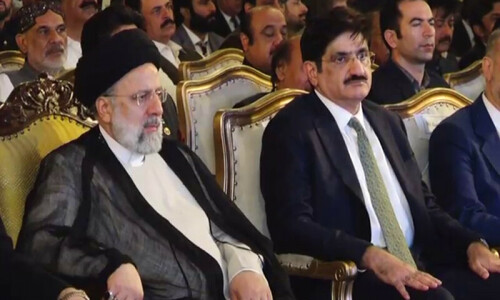ISLAMABAD: Pakistan's new government has ended a moratorium on executions, an official said Thursday as Amnesty International raised concerns about a “shocking and retrograde step”.
Under the previous government led by the Pakistan People's Party (PPP), no one except a soldier convicted by court martial was put to death since 2008.
But the PPP suffered a crushing defeat in historic elections on May 11, which swept to power the centre-right Pakistan Muslim League-N (PML-N) under Prime Minister Nawaz Sharif.
A presidential order imposing a moratorium on the death penalty, issued in 2008, expired on 30 June.
In Pakistan all executions must be approved by the president. The PPP's Asif Ali Zardari is due to step down in August and the parliament controlled by the PML-N will elect a new head of state.
“The new government has decided to deal with all cases of execution on merit,” said interior ministry spokesman Umer Hameed.
“The government has given clear instructions to see all such cases on a case-by-case basis and there will be no general amnesty for the convicts waiting for execution,” he told AFP.
London-based rights group Amnesty International on Wednesday called for an immediate moratorium on the use of the death penalty.
“Any government green light to resume executions in Pakistan would be a shocking and retrograde step, putting thousands of people's lives at risk,” said Polly Truscott, Amnesty's deputy Asia Pacific director.
Amnesty estimates that Pakistan has more than 8,000 prisoners on death row, most of whom have exhausted the appeals process and could now be facing execution.
“The sheer number of people at risk makes the new government policy of turning back to the death penalty even more horrendous,” said Truscott.
The interior ministry spokesman said up to 450 convicts are awaiting execution and their cases will be examined.
The government will show sympathy towards convicts who fall into a “special category” such as women and the elderly, he said.
Pakistan's crowded prisons lack basic facilities for inmates and the country normally deals harshly with prisoners.
It also suffers daily militant attacks blamed on extremists linked to the Taliban and Al Qaeda, as well as chronic crime in its largest cities.
“Resuming executions would do nothing to tackle crime or militancy, but instead just perpetuate a cycle of violence,” said Amnesty's Truscott.












































